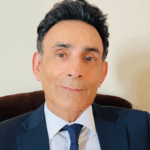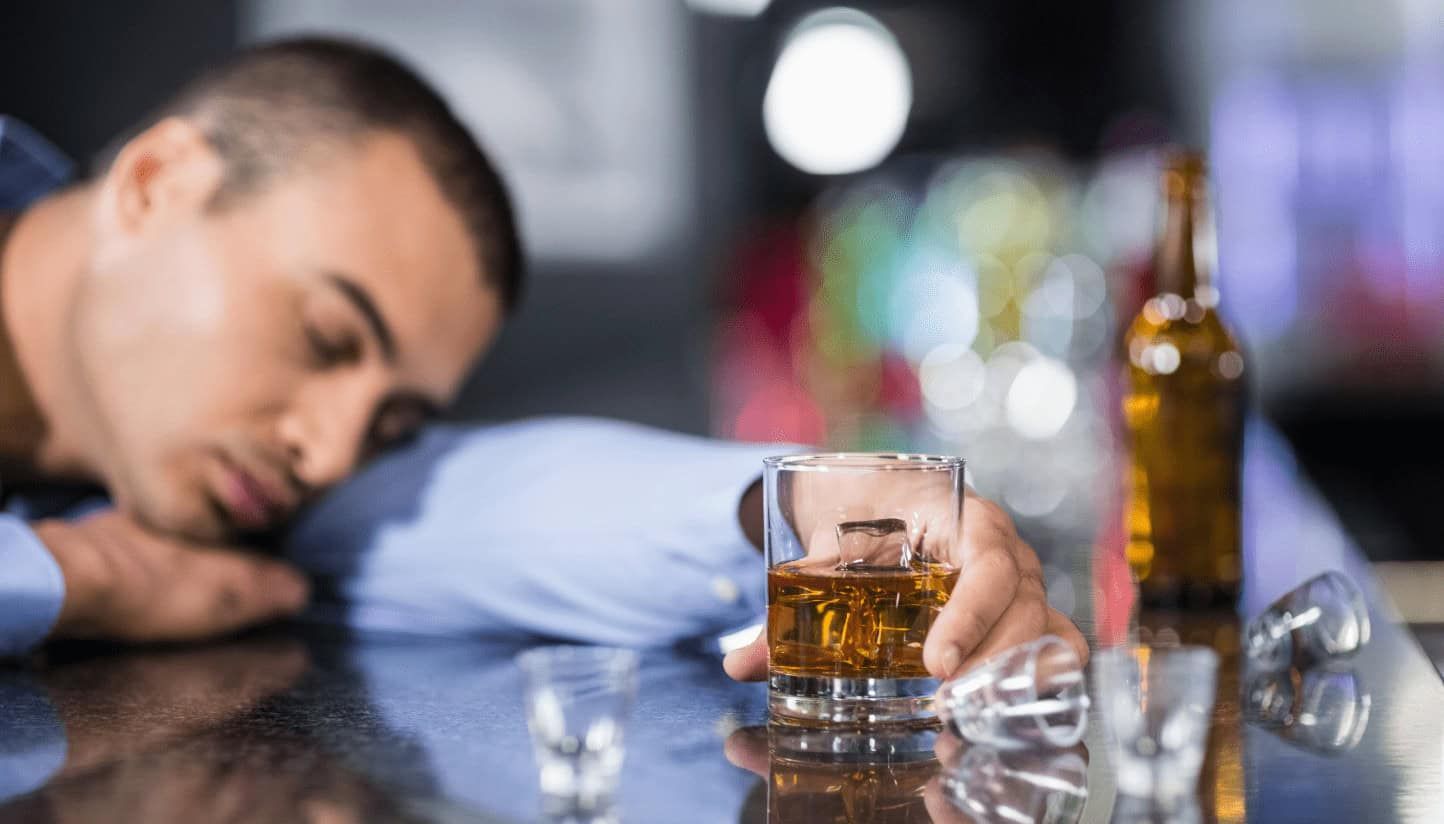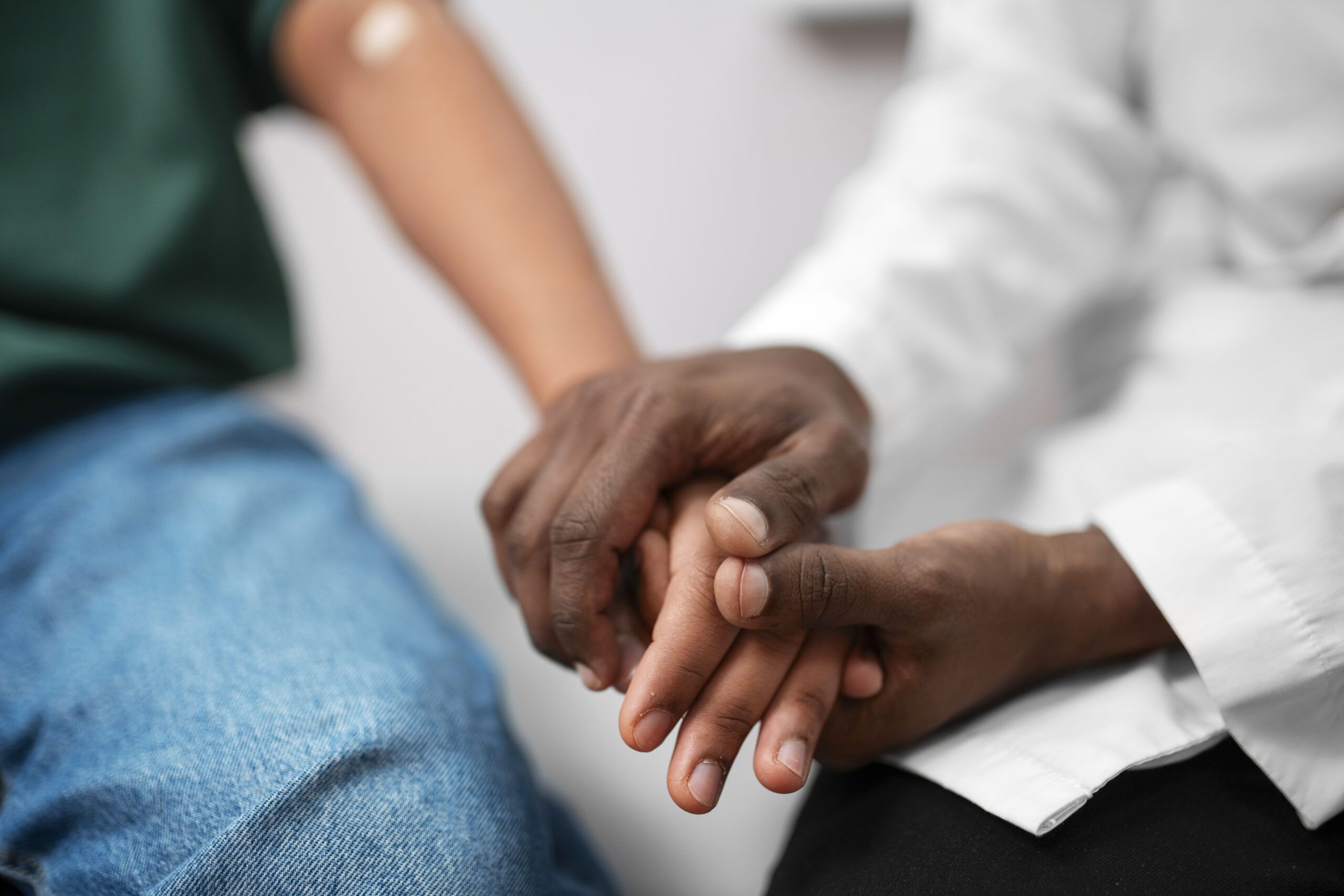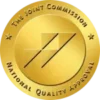Alcohol Addiction Treatment Center in TN and KY

Medically Reviewed By:
Dr. Vahid Osman, M.D.Board-Certified Psychiatrist and Addictionologist
Dr. Vahid Osman is a Board-Certified Psychiatrist and Addictionologist who has extensive experience in skillfully treating patients with mental illness, chemical dependency and developmental disorders. Dr. Osman has trained in Psychiatry in France and in Austin, Texas. Read more.

Clinically Reviewed By:
Josh Sprung, L.C.S.W.Board Certified Clinical Social Worker
Joshua Sprung serves as a Clinical Reviewer at Tennessee Detox Center, bringing a wealth of expertise to ensure exceptional patient care. Read More
- Mayo Foundation for Medical Education and Research. (2025, June 20). Drug addiction (substance use disorder). Mayo Clinic. https://www.mayoclinic.org/diseases-conditions/drug-addiction/symptoms-causes/syc-20365112
- SHADAC Staff and External Authors. (2025, January 6). During the pandemic, drug overdoses became the third leading cause of death for U.S. adolescents. SHADAC. https://www.shadac.org/news/adolescent-drug-overdose-deaths-pandemic-third-leading-cause-death#:~:text=From%202019%20to,g.%2C%20automobile%20collisions).
- U.S. Department of Health and Human Services. (2024, December 17). Reported use of most drugs among adolescents remained low in 2024. National Institutes of Health. https://nida.nih.gov/news-events/news-releases/2024/12/reported-use-of-most-drugs-among-adolescents-remained-low-in-2024
- Centers for Disease Control and Prevention. (n.d.). E-cigarette use among youth. Centers for Disease Control and Prevention. https://www.cdc.gov/tobacco/e-cigarettes/youth.html
- Centers for Disease Control and Prevention. (n.d.-a). About underage drinking. Centers for Disease Control and Prevention. https://www.cdc.gov/alcohol/underage-drinking/
- Centers for Disease Control and Prevention. (n.d.-c). Substance use among youth. Centers for Disease Control and Prevention. https://www.cdc.gov/youth-behavior/risk-behaviors/substance-use-among-youth.html
- Whitesell, M., Bachand, A., Peel, J., & Brown, M. (2013). Familial, social, and individual factors contributing to risk for adolescent substance use. Journal of addiction. https://pmc.ncbi.nlm.nih.gov/articles/PMC4008086/#:~:text=Adolescents%20are%20particularly%20susceptible%20to%20involvement%20in%20substance%20use%20due%20to%20the%20underdeveloped%20state%20of%20the%20adolescent%20brain%2C%20which%20can%20lead%20to%20reduced%20decision%2Dmaking%20ability%20and%20increased%20long%2Dterm%20effects%20of%20drugs%20and%20alcohol.
- U.S. Department of Health and Human Services. (n.d.). The Teen Brain: 7 things to know. National Institute of Mental Health. https://www.nimh.nih.gov/health/publications/the-teen-brain-7-things-to-know#:~:text=Changes%20to%20the,of%20a%20decision.
- Henok Zeratsion, C. B. B. (2014, June 13). Does parental divorce increase risk behaviors among 15/16 and 18/19 year-old adolescents? A study from Oslo, Norway. Clinical Practice and Epidemiology in Mental Health. https://clinical-practice-and-epidemiology-in-mental-health.com/VOLUME/10/PAGE/59/FULLTEXT/#:~:text=divorce%2C%20risk%20behaviors.-,INTRODUCTION,their%20counterparts%20without%20such%20experience.
- Foy, C. (2022, July 22). Addiction and children of divorce – what the stats reveal. FHE Health. https://fherehab.com/learning/addiction-children-of-divorce#:~:text=A%20Lebanese%20study%20published%20in,by%20addiction%20due%20to%20divorce.
- Waldron, M., Grant, J. D., Bucholz, K. K., Lynskey, M. T., Slutske, W. S., Glowinski, A. L., Henders, A., Statham, D. J., Martin, N. G., & Heath, A. C. (2014, January 1). Parental separation and early substance involvement: Results from children of alcoholic and cannabis dependent twins. Drug and alcohol dependence. https://pmc.ncbi.nlm.nih.gov/articles/PMC3908916/#:~:text=Parental%20separation%20or%20divorce%20provides,cannabis%20dependence%2C%20including%20genetic%20risks.
- Hamdan, S., Melhem, N. M., Porta, G., Song, M. S., & Brent, D. A. (2013, August). Alcohol and substance abuse in parentally bereaved youth. The Journal of clinical psychiatry. https://pmc.ncbi.nlm.nih.gov/articles/PMC4037812/
- Bell, T. M., Raymond, J., Vetor, A., Mongalo, A., Adams, Z., Rouse, T., & Carroll, A. (2019, October). Long-term prescription opioid utilization, substance use disorders, and opioid overdoses after adolescent trauma. The journal of trauma and acute care surgery. https://pmc.ncbi.nlm.nih.gov/articles/PMC6745292/#:~:text=Injured%20adolescents%20have%20a,overdose%20and%20SUD%20diagnoses
- Gansner, M., Horton, A. K., Singh, R., & Schuman-Olivier, Z. (2025, August 11). Exploring relationships between social media use, online exposure to drug-related content, and youth substance use in real time: A pilot ecological momentary assessment study in a clinical sample of adolescents and young adults. Frontiers. https://www.frontiersin.org/journals/child-and-adolescent-psychiatry/articles/10.3389/frcha.2024.1369810/full#:~:text=a%20significant%20relationship%20exists%20between%20exposure%20to%20substance%2Drelated%20social%20media%20content%20and%20use%20of%20drugs%20and%20alcohol
- Ramo, D. E., & Costello, C. R. (n.d.). Social Media and substance use: What should we be recommending to teens and their parents? – journal of adolescent health. Journal of Adolescent Health. https://www.jahonline.org/article/S1054-139X(17)30158-1/fulltext
- U.S. Department of Health and Human Services. (2022, June 13). What are the signs of having a problem with drugs?. National Institutes of Health. https://nida.nih.gov/research-topics/parents-educators/conversation-starters/what-are-signs-having-problem-drugs
- Sams, J. (2024, September 17). Signs of teen substance abuse: What medical professionals look for. NursingEducation. https://nursingeducation.org/resources/teen-substance-abuse/
- Signs of Drug Use in Teens. Partnership to End Addiction. (2024, September 3). https://drugfree.org/article/signs-of-drug-use-in-teens/
- U.S. Department of Health and Human Services. (2025, June 27). Drugs A to Z. National Institutes of Health. https://nida.nih.gov/research-topics/drugs-a-to-z
- World Health Organization. (2022, June 22). Mental health. World Health Organization. https://www.who.int/news-room/fact-sheets/detail/mental-health-strengthening-our-response#:~:text=Mental%20health%20is%20a%20state%20of%20mental%20well%2Dbeing%20that%20enables%20people%20to%20cope%20with%20the%20stresses%20of%20life%2C%20realize%20their%20abilities%2C%20learn%20well%20and%20work%20well%2C%20and%20contribute%20to%20their%20community.
- Mental health for adolescents. HHS Office of Population Affairs. (n.d.). https://opa.hhs.gov/adolescent-health/mental-health-adolescents
- Compass Health Center. (2025, June 20). Teen Mental Health Facts and Statistics 2024. https://compasshealthcenter.net/blog/teen-mental-health-statistics/#:~:text=42%25%20of%20teens%20experience%20persistent%20feelings%20of%20sadness%20or%20hopelessness
- U.S. Department of Health and Human Services. (n.d.-a). Any anxiety disorder. National Institute of Mental Health. https://www.nimh.nih.gov/health/statistics/any-anxiety-disorder#:~:text=An%20estimated%2031.9%25%20of%20adolescents%20had%20any%20anxiety%20disorder.
- The NCES Fast Facts of Bullying. National Center for Education Statistics (NCES) Home Page, a part of the U.S. Department of Education. (n.d.). https://nces.ed.gov/fastfacts/display.asp?id=719#:~:text=In%202021%E2%80%9322%2C%20about%2019%20percent%20of%20students%20ages%2012%E2%80%93181%20reported%20being%20bullied2%20during%20school%2C3%20which%20was%20lower%20than%20the%20percentage%20who%20reported%20this%20in%202010%E2%80%9311%20(28%20percent)
- Bowler, A. (2024, July 30). Isolation Among Generation Z in the United States. Ballard Brief. https://ballardbrief.byu.edu/issue-briefs/isolation-among-generation-z-in-the-united-states
- Depression in Teens and Children. Johns Hopkins Medicine. (2024, October 30). https://www.hopkinsmedicine.org/health/conditions-and-diseases/depression-in-children
- Anxiety in Teens: Causes, Symptoms & Treatment. Granite Hills Hospital. (2024, May 13). https://granitehillshospital.com/blog/anxiety-in-teens-causes-symptoms-treatment/
- Our Epidemic of Loneliness and Isolation. Our Epidemic of Loneliness and Isolation: The U.S. Surgeon General’s Advisory on the Healing Effects of Social Connection and Community. (2023). https://www.hhs.gov/sites/default/files/surgeon-general-social-connection-advisory.pdf
- Loneliness is Hard (For Kids and Teens). Mental Health America. (n.d.). https://mhanational.org/resources/loneliness-is-hard-for-kids-and-teens/
- Assistant Secretary for Public Affairs (ASPA). (2021, November 11). Warning Signs For Bullying. StopBullying.gov. https://www.stopbullying.gov/bullying/warning-signs
- Mayo Foundation for Medical Education and Research. (2022, August 12). Teen Depression. Mayo Clinic. https://www.mayoclinic.org/diseases-conditions/teen-depression/symptoms-causes/syc-20350985
- Smith, M., Robinson, L., Segal, J., & Reid, S. (2025, January 16). Parent’s Guide to Teen Depression. HelpGuide.org. https://www.helpguide.org/mental-health/depression/parents-guide-to-teen-depression
- U.S. Department of Health and Human Services. (n.d.-a). Any Anxiety Disorder. National Institute of Mental Health. https://www.nimh.nih.gov/health/statistics/any-anxiety-disorder#:~:text=The%20prevalence%20of%20any%20anxiety%20disorder%20among%20adolescents%20was%20higher%20for%20females%20(38.0%25)%20than%20for%20males%20(26.1%25).
- Twenge, J. M., Haidt, J., Blake, A. B., McAllister, C., Lemon, H., & Le Roy, A. (2021a, July 20). Worldwide Increases In Adolescent Loneliness. Journal of Adolescence. https://pubmed.ncbi.nlm.nih.gov/34294429/#:~:text=Increases%20in%20loneliness%20were%20larger%20among%20girls%20than%20among%20boys%20and%20in%20countries%20with%20full%20measurement%20invariance.
- Cohen, S. (2024, April 3). Girls are struggling with their mental health. Here’s what parents can do. UCLA Health. https://www.uclahealth.org/news/article/girls-are-struggling-with-their-mental-health-heres-what
- Dube, S. R., Anda, R. F., Whitefield, C. L., Brown, D. W., Felitti, V. J., Dong, M., & Giles, W. H. (n.d.). Long-Term Consequences of Childhood Sexual Abuse by Gender of Victim – American Journal of Preventive Medicine. American Journal of Preventive Medicine. https://www.ajpmonline.org/article/S0749-3797(05)00078-4/abstract
- Social Media and Youth Mental Health. (2023). https://www.hhs.gov/sites/default/files/sg-youth-mental-health-social-media-advisory.pdf
- Carvalho, S. A., & Carona, C. (2025, April 16). Improving mental health practice with boys and men: Core challenges and guidance for clinicians. Cambridge Core. https://www.cambridge.org/core/journals/bjpsych-advances/article/abs/improving-mental-health-practice-with-boys-and-men-core-challenges-and-guidance-for-clinicians/D56EA8371AA31EF47786DE34AA769D1F
- Sheikh, A., Payne-Cook, C., Lisk, S., Carter, B., & Brown, J. S. L. (2024, July 14). Why do young men not seek help for affective mental health issues? A systematic review of perceived barriers and facilitators among adolescent boys and young men. https://pmc.ncbi.nlm.nih.gov/articles/PMC11868194/
- Gray, K. M., & Squeglia, L. M. (2018, June 1). Research Review: What Have We Learned About Adolescent Substance Use?. Journal of child psychology and psychiatry, and allied disciplines. https://pmc.ncbi.nlm.nih.gov/articles/PMC5771977/
Did you know that your insurance plan may cover medical detox?

Contact Us Today

Addiction and co-occurring disorders don’t have to control your life. Tulip Hill Healthcare is waiting with open arms to give you the tools necessary for lasting change. Reach out to us today to learn more.
Supporting Families Through Recovery
We understand addiction affects the whole family. Our comprehensive family program helps rebuild trust and restore relationships.
Weekly Family Therapy Sessions
Educational Workshops
Support Groups
Communication Skills Training
What Our Patients Say: Stories of Hope and Recovery
Hear directly from those who have walked the path to recovery. Our patients’ stories highlight the compassionate care, effective programs, and life-changing support they’ve experienced. Let their journeys inspire you as you take your first steps toward healing.
The treatment programs are comprehensive and evidence-based, offering a perfect blend of one-on-one therapy, group counseling, and holistic services like mindfulness. What stood out most was how individualized the care was. The environment is clean, peaceful, and designed to help clients feel safe and supported.
If you or someone you love is struggling with addiction, I wholeheartedly recommend Tulip Hill Healthcre. They don’t just help you get sober — they help you rebuild your life.
The level of individualized attention and support is unmatched. They take the time to really understand each person’s needs and tailor care accordingly, whether it’s for mental health, addiction recovery, or dual diagnosis treatment. The environment is clean, peaceful, and thoughtfully designed to promote healing and personal growth.
What really sets Tulip Hill apart is their dedication to holistic wellness — they don’t just treat symptoms, they help people rebuild their lives. The therapists and counselors are incredibly skilled, compassionate, and invested in their patients' success. You can tell they care deeply.
If you’re looking for a place that treats you with dignity, encourages transformation, and supports your healing journey every step of the way, I can’t recommend Tulip Hill Healthcare enough. They truly change lives.
Alcohol addiction is a disease that affects millions of people and touches countless families across the nation. Tennessee and Kentucky are no exceptions, with alcohol abuse posing a severe health crisis in both states. Recovery may seem overwhelming, but with comprehensive treatment services like those offered by Tulip Hill Healthcare, individuals can take meaningful steps toward reclaiming their lives. For those looking for a reliable alcohol rehab in Tennessee and Kentucky, Tulip Hill Healthcare has several high-quality facilities to choose from.
This blog will explore alcohol addiction, treatment options, and how Tulip Hill Healthcare provides compassionate and evidence-based care. In this blog, you’ll find information on:

Alcohol Addiction Stats in Tennessee
Tennessee is no stranger to alcohol-related issues. From 2019 to 2023, alcohol-attributable deaths increased in the state by 24.3%. In addition, from 2020-2023, alcohol-related hospital admissions increased by 19.8% in the state. This troubling trend not only endangers lives but also causes economic strain, with alcohol-related costs reaching billions each year in healthcare expenses, crime, and lost productivity.
In Kentucky, drinking remains a critical issue, with 13.8% of residents reporting excessive or binge drinking in 2022 alone. These numbers highlight the critical need for accessible, high-quality alcohol rehabilitation centers in Tennessee and KY, like those offered by Tulip Hill Healthcare. If you feel you’re one of the many residents struggling with controlling your alcohol use, it’s time to start exploring alcohol rehabilitation Nashville TN offers from Tulip Hill Healthcare.
Alcohol Detox and Why It’s Critical
The first hurdle for many battling alcohol addiction is detoxification. Detox is the process of removing toxic substances, like alcohol, from the body. While it is a vital step toward recovery, quitting alcohol suddenly – especially after long-term or heavy use – can lead to severe withdrawal symptoms. These symptoms may include:
- Anxiety
- Tremors
- Nausea
- Seizures
- Life-threatening complications like delirium tremens
Undergoing alcohol detox Nashville TN residents trust in a medical setting ensures that clients are monitored closely, with 24/7 support from healthcare professionals. They can intervene when physical or emotional symptoms escalate. Medically supervised detox is not just about physical stabilization; it prepares the individual for a smoother transition into rehabilitation programs where the root causes of addiction can be addressed.
At Tulip Hill Healthcare, our medical detox facilities in TN and KY are equipped with advanced medical technologies and staffed with highly trained professionals who specialize in addiction medicine. Our team provides personalized care to each client, addressing their unique needs and concerns. We understand that detox can be a challenging experience, both physically and emotionally, and we are committed to providing a safe and comfortable environment for our clients.
TN Alcohol Rehab Programs – The Power of Support
Rehabilitation is more than simply abstaining from alcohol; it’s about building a new life free from addiction. Our alcohol rehab TN and KY programs are designed to offer holistic care, focusing on treating not just alcohol addiction but also the emotional, psychological, and environmental factors surrounding it.
Tulip Hill Healthcare offers various alcohol treatment centers in Tennessee and Kentucky. Our programs cater to individual needs, and include:
-
Inpatient treatment
-
Partial hospitalization
-
Intensive outpatient treatment
-
Outpatient care
-
Dual-diagnosis treatment
-
Aftercare services
These programs create structured and supportive environments where individuals can focus entirely on recovery. Our inpatient alcohol rehab Tennessee offers provides safe and stable housing, while our outpatient programs blend flexibility with accountability. Additionally, our dual-diagnosis treatment addresses co-occurring mental health disorders that may be contributing to alcohol abuse.
Our support networks also play a massive role during rehab. Therapy sessions, group support meetings, and family counseling empower individuals to reconnect with loved ones and foster a sense of belonging. This community support is a proven factor in enhancing long-term recovery success.
Treatment for Alcohol Addiction in Tennessee
Residents of Tennessee and Kentucky who struggle with alcohol addiction now have access to localized, high-quality treatment tailored to their needs. Tulip Hill Healthcare provides a comprehensive continuum of care, so clients don’t need to go far from home to access a variety of alcohol treatment in Tennessee. Whether you’re looking for an alcohol rehab Nashville TN offers that has a high level of structure through inpatient care or prefer the flexibility of an outpatient program, there are options available to suit everyone.
Proximity matters – being close to home can make it easier for family and friends to stay involved, which is essential for fostering motivation and accountability throughout the recovery process. Whether you attend our alcohol rehab Murfreesboro TN offers or explore our out-of-state KY rehabs, you’ll feel supported by our community and staff.
What Our Patients Say: Stories of Hope and Recovery
The treatment programs are comprehensive and evidence-based, offering a perfect blend of one-on-one therapy, group counseling, and holistic services like mindfulness. What stood out most was how individualized the care was. The environment is clean, peaceful, and designed to help clients feel safe and supported.
If you or someone you love is struggling with addiction, I wholeheartedly recommend Tulip Hill Healthcre. They don’t just help you get sober — they help you rebuild your life.
The level of individualized attention and support is unmatched. They take the time to really understand each person’s needs and tailor care accordingly, whether it’s for mental health, addiction recovery, or dual diagnosis treatment. The environment is clean, peaceful, and thoughtfully designed to promote healing and personal growth.
What really sets Tulip Hill apart is their dedication to holistic wellness — they don’t just treat symptoms, they help people rebuild their lives. The therapists and counselors are incredibly skilled, compassionate, and invested in their patients' success. You can tell they care deeply.
If you’re looking for a place that treats you with dignity, encourages transformation, and supports your healing journey every step of the way, I can’t recommend Tulip Hill Healthcare enough. They truly change lives.
Alcohol Addiction Treatment Therapies
-
Cognitive Behavioral Therapy (CBT):
Helps patients identify thought patterns that lead to substance use and develop healthier coping strategies.
-
Trauma-Informed Care:
Addresses past trauma and its role in perpetuating addiction, a vital component for individuals with co-occurring mental health disorders.
-
Family Therapy:
Rebuilds trust and establishes better communication within households impacted by addiction.
-
Dialectical Behavior Therapy (DBT):
Improves emotional regulation and interpersonal skills, helping patients manage stress without turning to alcohol.
-
Motivational Interviewing (MI):
Encourages individuals to reflect on their goals and values to boost their motivation to stay sober.
These therapies are tailored to each patient’s unique situations and guided by clinicians who understand the complexities of addiction. We pride ourselves in being an alcohol rehab in Nashville TN that relies on evidence-based treatments to help our clients recover from alcohol use disorder.
Alcohol Addiction Treatment Support Services
-
Relapse Prevention Planning:
Clients learn strategies to identify triggers and handle cravings in high-risk situations.
-
Aftercare Programs:
Ongoing therapy sessions and support groups ensure continued growth and accountability post-rehab.
-
Dual Diagnosis Treatment:
Specialized care for individuals dealing with co-occurring mental health issues, such as depression or anxiety, alongside addiction.
-
Life Skills Training:
Practical tools to help patients rebuild their lives, such as budgeting, career counseling, and stress management techniques.
-
Family Support Services:
Family education groups and counseling sessions to help loved ones understand addiction and their role in the recovery process.
Why Choose Tulip Hill Healthcare?
With so many alcohol treatment centers Nashville TN and KY offer, choosing the right one can feel overwhelming. Here’s why Tulip Hill Healthcare’s network of rehab centers should be your top choice.

Holistic Care
Tulip Hill Healthcare addresses both the physical and emotional aspects of addiction, ensuring comprehensive recovery. At all of our alcohol rehab centers Nashville TN and KY have, patients receive personalized care plans tailored to their unique needs.

Compassionate Support
Addiction can be a difficult journey for both the individual struggling with it and their loved ones. When it comes to alcohol addiction, we know the road to recovery is rarely a straight line. At each of our rehab centers, we understand the importance of providing compassionate support throughout this journey.

Convenient Locations
Located in Tennessee and Kentucky, Tulip Hill Healthcare enables access to care close to home for individuals in the Southeast region. Whether you’re looking for alcohol treatment Nashville TN offers, alcohol PHP in Louisville, or medical detox in Murfreesboro, there’s a facility near you that can accommodate you and your recovery goals.

Focus on Long-Term Recovery
Through aftercare and relapse prevention programs, our team supports individuals long after completing their primary treatment course. By creating a safe, supportive environment for healing, Tulip Hill Healthcare stands out as a leader in alcohol addiction treatment. You’ll notice walking into our drug and alcohol rehab centers means walking into a world of luxury, serenity, and recovery in TN and KY.
Ask Our Expert Clinicians
Drug, Alcohol & Mental Health Questions
Alcohol addiction, or alcohol use disorder, is a chronic disease characterized by an inability to control alcohol consumption despite its negative impact on health, relationships, and responsibilities.
Signs include repeated unsuccessful attempts to cut down or stop drinking, neglecting personal or professional responsibilities, and experiencing withdrawal symptoms like nausea, sweating, or anxiety when not drinking.
Alcohol addiction is caused by various factors, including genetics, environmental influences, a history of trauma, and mental health conditions like depression or anxiety.
Yes, alcohol addiction is treatable. Recovery often involves a mix of therapies, medical interventions, and long-term behavioral changes.
Treatments range from detox and inpatient programs to outpatient care, psychotherapy, support groups, and ongoing aftercare.
If alcohol use impacts daily life, relationships, or health, it’s time to seek professional help. Behavioral changes like isolation or increased drinking frequency are warning signs.
During detox, the body eliminates alcohol. Medical detox programs provide supervision, medication for withdrawal symptom management, and emotional support.
Yes, quitting alcohol suddenly can be dangerous, especially for heavy or long-term drinkers. Medical supervision ensures safety during withdrawal.
Many insurance policies cover addiction treatment. Tulip Hill Healthcare works with numerous providers to help patients access care.
Yes, with the right support and consistent effort, individuals can achieve long-term recovery and lead fulfilling, sober lives.
If you or someone you love is struggling with alcohol addiction, know that help is available. Contact Tulip Hill Healthcare today 888-984-6301 to take the first step toward recovery.
Get Family Support Now
Supporting Families Through Recovery
We understand addiction affects the whole family. Our comprehensive family program helps rebuild trust and restore relationships.
Weekly Family Therapy Sessions
Educational Workshops
Support Groups
Communication Skills Training

Medically Reviewed By:
Dr. Vahid Osman, M.D.Board-Certified Psychiatrist and Addictionologist
Dr. Vahid Osman is a Board-Certified Psychiatrist and Addictionologist who has extensive experience in skillfully treating patients with mental illness, chemical dependency and developmental disorders. Dr. Osman has trained in Psychiatry in France and in Austin, Texas. Read more.

Clinically Reviewed By:
Josh Sprung, L.C.S.W.Board Certified Clinical Social Worker
Joshua Sprung serves as a Clinical Reviewer at Tennessee Detox Center, bringing a wealth of expertise to ensure exceptional patient care. Read More
- Mayo Foundation for Medical Education and Research. (2025, June 20). Drug addiction (substance use disorder). Mayo Clinic. https://www.mayoclinic.org/diseases-conditions/drug-addiction/symptoms-causes/syc-20365112
- SHADAC Staff and External Authors. (2025, January 6). During the pandemic, drug overdoses became the third leading cause of death for U.S. adolescents. SHADAC. https://www.shadac.org/news/adolescent-drug-overdose-deaths-pandemic-third-leading-cause-death#:~:text=From%202019%20to,g.%2C%20automobile%20collisions).
- U.S. Department of Health and Human Services. (2024, December 17). Reported use of most drugs among adolescents remained low in 2024. National Institutes of Health. https://nida.nih.gov/news-events/news-releases/2024/12/reported-use-of-most-drugs-among-adolescents-remained-low-in-2024
- Centers for Disease Control and Prevention. (n.d.). E-cigarette use among youth. Centers for Disease Control and Prevention. https://www.cdc.gov/tobacco/e-cigarettes/youth.html
- Centers for Disease Control and Prevention. (n.d.-a). About underage drinking. Centers for Disease Control and Prevention. https://www.cdc.gov/alcohol/underage-drinking/
- Centers for Disease Control and Prevention. (n.d.-c). Substance use among youth. Centers for Disease Control and Prevention. https://www.cdc.gov/youth-behavior/risk-behaviors/substance-use-among-youth.html
- Whitesell, M., Bachand, A., Peel, J., & Brown, M. (2013). Familial, social, and individual factors contributing to risk for adolescent substance use. Journal of addiction. https://pmc.ncbi.nlm.nih.gov/articles/PMC4008086/#:~:text=Adolescents%20are%20particularly%20susceptible%20to%20involvement%20in%20substance%20use%20due%20to%20the%20underdeveloped%20state%20of%20the%20adolescent%20brain%2C%20which%20can%20lead%20to%20reduced%20decision%2Dmaking%20ability%20and%20increased%20long%2Dterm%20effects%20of%20drugs%20and%20alcohol.
- U.S. Department of Health and Human Services. (n.d.). The Teen Brain: 7 things to know. National Institute of Mental Health. https://www.nimh.nih.gov/health/publications/the-teen-brain-7-things-to-know#:~:text=Changes%20to%20the,of%20a%20decision.
- Henok Zeratsion, C. B. B. (2014, June 13). Does parental divorce increase risk behaviors among 15/16 and 18/19 year-old adolescents? A study from Oslo, Norway. Clinical Practice and Epidemiology in Mental Health. https://clinical-practice-and-epidemiology-in-mental-health.com/VOLUME/10/PAGE/59/FULLTEXT/#:~:text=divorce%2C%20risk%20behaviors.-,INTRODUCTION,their%20counterparts%20without%20such%20experience.
- Foy, C. (2022, July 22). Addiction and children of divorce – what the stats reveal. FHE Health. https://fherehab.com/learning/addiction-children-of-divorce#:~:text=A%20Lebanese%20study%20published%20in,by%20addiction%20due%20to%20divorce.
- Waldron, M., Grant, J. D., Bucholz, K. K., Lynskey, M. T., Slutske, W. S., Glowinski, A. L., Henders, A., Statham, D. J., Martin, N. G., & Heath, A. C. (2014, January 1). Parental separation and early substance involvement: Results from children of alcoholic and cannabis dependent twins. Drug and alcohol dependence. https://pmc.ncbi.nlm.nih.gov/articles/PMC3908916/#:~:text=Parental%20separation%20or%20divorce%20provides,cannabis%20dependence%2C%20including%20genetic%20risks.
- Hamdan, S., Melhem, N. M., Porta, G., Song, M. S., & Brent, D. A. (2013, August). Alcohol and substance abuse in parentally bereaved youth. The Journal of clinical psychiatry. https://pmc.ncbi.nlm.nih.gov/articles/PMC4037812/
- Bell, T. M., Raymond, J., Vetor, A., Mongalo, A., Adams, Z., Rouse, T., & Carroll, A. (2019, October). Long-term prescription opioid utilization, substance use disorders, and opioid overdoses after adolescent trauma. The journal of trauma and acute care surgery. https://pmc.ncbi.nlm.nih.gov/articles/PMC6745292/#:~:text=Injured%20adolescents%20have%20a,overdose%20and%20SUD%20diagnoses
- Gansner, M., Horton, A. K., Singh, R., & Schuman-Olivier, Z. (2025, August 11). Exploring relationships between social media use, online exposure to drug-related content, and youth substance use in real time: A pilot ecological momentary assessment study in a clinical sample of adolescents and young adults. Frontiers. https://www.frontiersin.org/journals/child-and-adolescent-psychiatry/articles/10.3389/frcha.2024.1369810/full#:~:text=a%20significant%20relationship%20exists%20between%20exposure%20to%20substance%2Drelated%20social%20media%20content%20and%20use%20of%20drugs%20and%20alcohol
- Ramo, D. E., & Costello, C. R. (n.d.). Social Media and substance use: What should we be recommending to teens and their parents? – journal of adolescent health. Journal of Adolescent Health. https://www.jahonline.org/article/S1054-139X(17)30158-1/fulltext
- U.S. Department of Health and Human Services. (2022, June 13). What are the signs of having a problem with drugs?. National Institutes of Health. https://nida.nih.gov/research-topics/parents-educators/conversation-starters/what-are-signs-having-problem-drugs
- Sams, J. (2024, September 17). Signs of teen substance abuse: What medical professionals look for. NursingEducation. https://nursingeducation.org/resources/teen-substance-abuse/
- Signs of Drug Use in Teens. Partnership to End Addiction. (2024, September 3). https://drugfree.org/article/signs-of-drug-use-in-teens/
- U.S. Department of Health and Human Services. (2025, June 27). Drugs A to Z. National Institutes of Health. https://nida.nih.gov/research-topics/drugs-a-to-z
- World Health Organization. (2022, June 22). Mental health. World Health Organization. https://www.who.int/news-room/fact-sheets/detail/mental-health-strengthening-our-response#:~:text=Mental%20health%20is%20a%20state%20of%20mental%20well%2Dbeing%20that%20enables%20people%20to%20cope%20with%20the%20stresses%20of%20life%2C%20realize%20their%20abilities%2C%20learn%20well%20and%20work%20well%2C%20and%20contribute%20to%20their%20community.
- Mental health for adolescents. HHS Office of Population Affairs. (n.d.). https://opa.hhs.gov/adolescent-health/mental-health-adolescents
- Compass Health Center. (2025, June 20). Teen Mental Health Facts and Statistics 2024. https://compasshealthcenter.net/blog/teen-mental-health-statistics/#:~:text=42%25%20of%20teens%20experience%20persistent%20feelings%20of%20sadness%20or%20hopelessness
- U.S. Department of Health and Human Services. (n.d.-a). Any anxiety disorder. National Institute of Mental Health. https://www.nimh.nih.gov/health/statistics/any-anxiety-disorder#:~:text=An%20estimated%2031.9%25%20of%20adolescents%20had%20any%20anxiety%20disorder.
- The NCES Fast Facts of Bullying. National Center for Education Statistics (NCES) Home Page, a part of the U.S. Department of Education. (n.d.). https://nces.ed.gov/fastfacts/display.asp?id=719#:~:text=In%202021%E2%80%9322%2C%20about%2019%20percent%20of%20students%20ages%2012%E2%80%93181%20reported%20being%20bullied2%20during%20school%2C3%20which%20was%20lower%20than%20the%20percentage%20who%20reported%20this%20in%202010%E2%80%9311%20(28%20percent)
- Bowler, A. (2024, July 30). Isolation Among Generation Z in the United States. Ballard Brief. https://ballardbrief.byu.edu/issue-briefs/isolation-among-generation-z-in-the-united-states
- Depression in Teens and Children. Johns Hopkins Medicine. (2024, October 30). https://www.hopkinsmedicine.org/health/conditions-and-diseases/depression-in-children
- Anxiety in Teens: Causes, Symptoms & Treatment. Granite Hills Hospital. (2024, May 13). https://granitehillshospital.com/blog/anxiety-in-teens-causes-symptoms-treatment/
- Our Epidemic of Loneliness and Isolation. Our Epidemic of Loneliness and Isolation: The U.S. Surgeon General’s Advisory on the Healing Effects of Social Connection and Community. (2023). https://www.hhs.gov/sites/default/files/surgeon-general-social-connection-advisory.pdf
- Loneliness is Hard (For Kids and Teens). Mental Health America. (n.d.). https://mhanational.org/resources/loneliness-is-hard-for-kids-and-teens/
- Assistant Secretary for Public Affairs (ASPA). (2021, November 11). Warning Signs For Bullying. StopBullying.gov. https://www.stopbullying.gov/bullying/warning-signs
- Mayo Foundation for Medical Education and Research. (2022, August 12). Teen Depression. Mayo Clinic. https://www.mayoclinic.org/diseases-conditions/teen-depression/symptoms-causes/syc-20350985
- Smith, M., Robinson, L., Segal, J., & Reid, S. (2025, January 16). Parent’s Guide to Teen Depression. HelpGuide.org. https://www.helpguide.org/mental-health/depression/parents-guide-to-teen-depression
- U.S. Department of Health and Human Services. (n.d.-a). Any Anxiety Disorder. National Institute of Mental Health. https://www.nimh.nih.gov/health/statistics/any-anxiety-disorder#:~:text=The%20prevalence%20of%20any%20anxiety%20disorder%20among%20adolescents%20was%20higher%20for%20females%20(38.0%25)%20than%20for%20males%20(26.1%25).
- Twenge, J. M., Haidt, J., Blake, A. B., McAllister, C., Lemon, H., & Le Roy, A. (2021a, July 20). Worldwide Increases In Adolescent Loneliness. Journal of Adolescence. https://pubmed.ncbi.nlm.nih.gov/34294429/#:~:text=Increases%20in%20loneliness%20were%20larger%20among%20girls%20than%20among%20boys%20and%20in%20countries%20with%20full%20measurement%20invariance.
- Cohen, S. (2024, April 3). Girls are struggling with their mental health. Here’s what parents can do. UCLA Health. https://www.uclahealth.org/news/article/girls-are-struggling-with-their-mental-health-heres-what
- Dube, S. R., Anda, R. F., Whitefield, C. L., Brown, D. W., Felitti, V. J., Dong, M., & Giles, W. H. (n.d.). Long-Term Consequences of Childhood Sexual Abuse by Gender of Victim – American Journal of Preventive Medicine. American Journal of Preventive Medicine. https://www.ajpmonline.org/article/S0749-3797(05)00078-4/abstract
- Social Media and Youth Mental Health. (2023). https://www.hhs.gov/sites/default/files/sg-youth-mental-health-social-media-advisory.pdf
- Carvalho, S. A., & Carona, C. (2025, April 16). Improving mental health practice with boys and men: Core challenges and guidance for clinicians. Cambridge Core. https://www.cambridge.org/core/journals/bjpsych-advances/article/abs/improving-mental-health-practice-with-boys-and-men-core-challenges-and-guidance-for-clinicians/D56EA8371AA31EF47786DE34AA769D1F
- Sheikh, A., Payne-Cook, C., Lisk, S., Carter, B., & Brown, J. S. L. (2024, July 14). Why do young men not seek help for affective mental health issues? A systematic review of perceived barriers and facilitators among adolescent boys and young men. https://pmc.ncbi.nlm.nih.gov/articles/PMC11868194/
- Gray, K. M., & Squeglia, L. M. (2018, June 1). Research Review: What Have We Learned About Adolescent Substance Use?. Journal of child psychology and psychiatry, and allied disciplines. https://pmc.ncbi.nlm.nih.gov/articles/PMC5771977/
Real Testimonials from Tulip Hill Healthcare Clients
Hear directly from those who have walked the path to recovery at Tulip Hill Healthcare. Our patients’ stories highlight the compassionate care, effective programs, and life-changing support they’ve experienced. Let their journeys inspire you as you take your first steps toward healing.
The treatment programs are comprehensive and evidence-based, offering a perfect blend of one-on-one therapy, group counseling, and holistic services like mindfulness. What stood out most was how individualized the care was. The environment is clean, peaceful, and designed to help clients feel safe and supported.
If you or someone you love is struggling with addiction, I wholeheartedly recommend Tulip Hill Healthcre. They don’t just help you get sober — they help you rebuild your life.
The level of individualized attention and support is unmatched. They take the time to really understand each person’s needs and tailor care accordingly, whether it’s for mental health, addiction recovery, or dual diagnosis treatment. The environment is clean, peaceful, and thoughtfully designed to promote healing and personal growth.
What really sets Tulip Hill apart is their dedication to holistic wellness — they don’t just treat symptoms, they help people rebuild their lives. The therapists and counselors are incredibly skilled, compassionate, and invested in their patients' success. You can tell they care deeply.
If you’re looking for a place that treats you with dignity, encourages transformation, and supports your healing journey every step of the way, I can’t recommend Tulip Hill Healthcare enough. They truly change lives.







